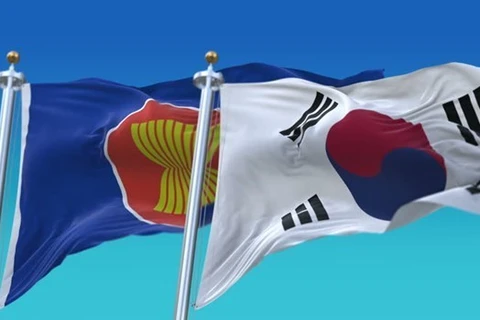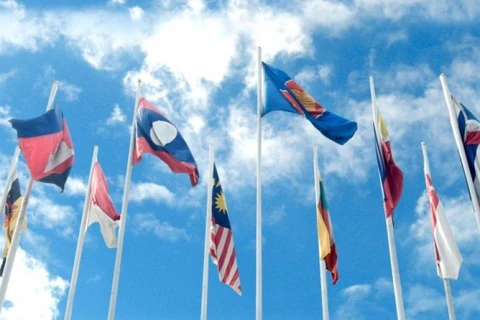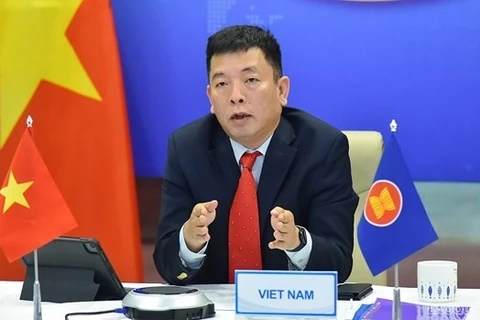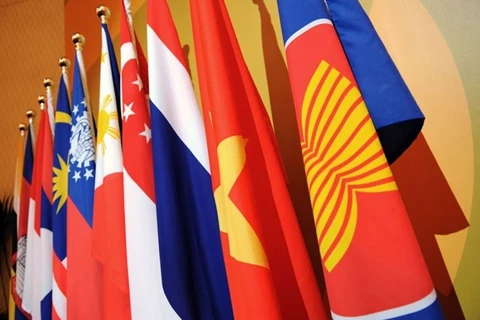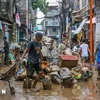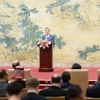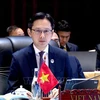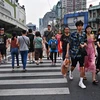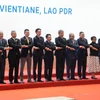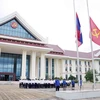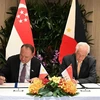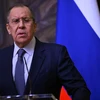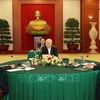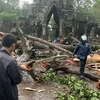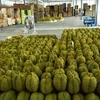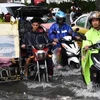Tokyo (VNA) – The ASEAN-Japan Centre (AJC) has released a paper on “ASEAN Global Value Chain and Its Relationship with RCEP: Impacts of RCEP on ASEAN Integration”, in which it recommends ASEAN to carry out five policy measures to benefit the most from RCEP.
The paper examines and compares global value chain (GVC) patterns of ASEAN with those of RCEP (Regional Comprehensive Economic Partnership) to identify RCEP-related opportunities and costs to ASEAN.
The study reveals that the role of ASEAN in RCEP GVCs is smaller than that in ASEAN GVCs and that ASEAN connectivity through production is therefore also smaller partly because RCEP is less integrated than ASEAN. While ASEAN produces many products, they do not necessarily become inputs to exports of non-ASEAN RCEP members’ exports.
On a per industry basis, the study shows that while the automotive and electronic GVCs are strong in ASEAN, they are much stronger in RCEP because of the participation of China, Japan, and South Korea. Therefore, there are opportunities for ASEAN GVCs in these industries to expand into non-ASEAN RCEP member states.
According to the study, ASEAN member states are mainly producers of apparels which are final product exporters rather than intermediate producers. ASEAN countries can benefit from the RCEP agreement by expanding their imports of textiles from China.
ASEAN agribusiness and tourism are typically regional or domestic market-oriented industries that could penetrate both ASEAN and RCEP markets.
The direct impact of RCEP on trade and investment as measured by increases in value is estimated at 42 billion USD in exports and 900 million USD in FDI in the current value. These numbers correspond to 1.8 percent and 0.3 percent of current exports and FDI flows.
To maximise benefits from the RCEP agreement, the paper identifies the following five specific policy measures for ASEAN, including creating RCEP production network to widen value chains and promoting trade and investment; utilising existing production programmes and initiatives of RCEP member states, one being Japan’s programme to diversify and multiplicate supply chains in ASEAN to deal with various risks such as COVID-19 that disrupted the supply chains; attracting foreign direct investments especially those that creates value chains from non-ASEAN RCEP member states; strengthening relationship with Japan since the country is seen to benefit more from the RCEP agreement than ASEAN; and developing parts and components of other RCEP member countries’ exports that are locked into the production lines of various GVCs./.
The paper examines and compares global value chain (GVC) patterns of ASEAN with those of RCEP (Regional Comprehensive Economic Partnership) to identify RCEP-related opportunities and costs to ASEAN.
The study reveals that the role of ASEAN in RCEP GVCs is smaller than that in ASEAN GVCs and that ASEAN connectivity through production is therefore also smaller partly because RCEP is less integrated than ASEAN. While ASEAN produces many products, they do not necessarily become inputs to exports of non-ASEAN RCEP members’ exports.
On a per industry basis, the study shows that while the automotive and electronic GVCs are strong in ASEAN, they are much stronger in RCEP because of the participation of China, Japan, and South Korea. Therefore, there are opportunities for ASEAN GVCs in these industries to expand into non-ASEAN RCEP member states.
According to the study, ASEAN member states are mainly producers of apparels which are final product exporters rather than intermediate producers. ASEAN countries can benefit from the RCEP agreement by expanding their imports of textiles from China.
ASEAN agribusiness and tourism are typically regional or domestic market-oriented industries that could penetrate both ASEAN and RCEP markets.
The direct impact of RCEP on trade and investment as measured by increases in value is estimated at 42 billion USD in exports and 900 million USD in FDI in the current value. These numbers correspond to 1.8 percent and 0.3 percent of current exports and FDI flows.
To maximise benefits from the RCEP agreement, the paper identifies the following five specific policy measures for ASEAN, including creating RCEP production network to widen value chains and promoting trade and investment; utilising existing production programmes and initiatives of RCEP member states, one being Japan’s programme to diversify and multiplicate supply chains in ASEAN to deal with various risks such as COVID-19 that disrupted the supply chains; attracting foreign direct investments especially those that creates value chains from non-ASEAN RCEP member states; strengthening relationship with Japan since the country is seen to benefit more from the RCEP agreement than ASEAN; and developing parts and components of other RCEP member countries’ exports that are locked into the production lines of various GVCs./.
VNA
